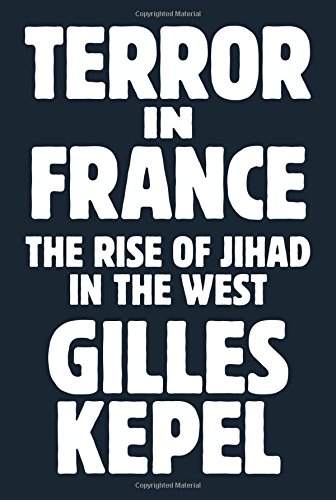The French website Mediapart has an interesting scoop by Arthur Herbert about the crash of a Rafale jet just as French President Emmanuel Macron was visiting Egypt. According to the report, the crash took place on 28 January, on the day that Macron met with Egyptian President Abdelfattah al-Sisi: they were discussing some €1.5bn’s worth of contracts being negotiated and Macron let Sisi know that he would bring up human rights concerns in a speech later that day, a rare mention of the topic ever since, under Macron and his predecessor François Hollande, France became one of Egypt’s top cheerleaders in the EU. A Rafale jet piloted by Major Mohtadi al-Shazli – one of the first Egyptian pilots trained to use the Rafale after their initial purchase in 2017 said to be involved in the May 2017 raid on Derna in eastern Libya – crashed for unknown reasons.
No one wants to discuss the crash, particularly as Egypt is negotiating the purchase additional Rafales, which at over €100m a piece (24 were bought in 2015, most probably with at least some UAE or Saudi co-funding or guarantee, more are scheduled despite the Egyptian Air Force already having a considerable fleet of other modern fighters, especially American F-16s) are the subject of controversy since the country has faced a major economic downturn in recent years and Sisi has massively increased spending both on defense procurement (especially with France and Germany) and prestige projects such as the widening of the Suez Canal. Until a few years ago France struggled to sell the Rafale, and Egypt’s purchase was a major coup – should a technical problem be at fault, it could cause problems for future contracts. Egypt appears to have tried to cover the story, and even spread rumors that the jet in question was a Chinese K-8E Karakorum rather than a Rafale, and most French officials are refusing to comment.
Mediapart (which is among the fiercest critic of Macron’s presidency from the left) is highlighting both the commercial fallout and Macron’s apparent discomfiture at a press event in Cairo, just after he learned about the crash:
Lundi 28 janvier 2019. Il est peu après 13 heures. Au Caire, Emmanuel Macron en visite d’État en Égypte, sort d’un entretien avec son homologue Abdel Fattah al-Sissi. C’est une visite compliquée : alors que l’Élysée avait annoncé la signature d’une avalanche de contrats pour près d’un milliard d’euros, plusieurs ne seront finalement pas signés ou contre toute attente transformés en simples protocoles d’accord.
Le chef d’État français a aussi prévenu : si un an et demi auparavant il avait donné un blanc-seing au président égyptien en affirmant ne « pas vouloir donner de leçons », cette fois à la conférence de presse qui est sur le point de se tenir, il évoquera ouvertement les violations des droits fondamentaux qui ont cours en Égypte.
L’ambiance est pénible. Dans la grande salle à dorures du palais présidentiel, une quarantaine de journalistes sont en train de s’installer. Derrière les grandes portes en bois marquetées, quelques secondes avant de se présenter devant la presse, une autre mauvaise nouvelle est glissée à l’oreille du président français : un Rafale vient d’être perdu.
Peu de temps avant, à 100 km au nord-ouest du Caire, sur la base aérienne militaire de Gabal al-Basur, le Rafale EM02-9352 des forces armées égyptiennes vient de s’écraser. Sous les yeux d’une équipe de formateurs et d’experts de Dassault Aviation, l’appareil flambant neuf, livré le 4 avril 2017 à l’Égypte a piqué du nez avant de se fracasser au sol.
À son bord, le major Mohtady al-Shazly, un pilote de l’armée de l’air égyptienne, connu sous le matricule « Cobra », était l’une des toutes premières recrues entraînées en France pour piloter les Rafale fraîchement acquis par les Égyptiens.
Originaire du village d’al-Atarsha, dans la localité d’al-Bagourg au nord du pays, l’homme de 32 ans, père de deux enfants, a été enterré le soir même en présence du gouverneur de Menoufyia. Lors des funérailles et sur les réseaux sociaux, l’homme est porté en « martyr ». On lui attribue notamment les bombardements égyptiens contre l’organisation de l’État islamique à Derna en Libye en mai 2017. Une opération menée après l’attaque qui avait tué vingt-huit fidèles coptes près d’al-Minya.
Contactés quelques heures après l’accident, les responsables de Dassault Aviation étaient injoignables. Au même moment, Éric Trappier, dirigeant de l’entreprise qui construit les Rafale, était dans la délégation qui accompagnait le président français au Caire. En dehors du petit cercle directement touché par la nouvelle, les officiels et les directeurs d’entreprise faisant partie du voyage n’ont pas été tenus informés, a confié l’un d’eux.
Devant un parterre de Français expatriés au Caire et d’Égyptiens francophones conviés à une réception tenue par le président français le soir même, à la tribune, lorsqu’il s’exprime devant le public, Emmanuel Macron tente de ne rien laisser percevoir. Dans l’assistance, on remarque néanmoins « un discours brouillon, comme s’il avait été mal préparé ». « On aurait dit qu’il venait juste de se prendre un gros scud dans la tête », ironise innocemment un invité.





